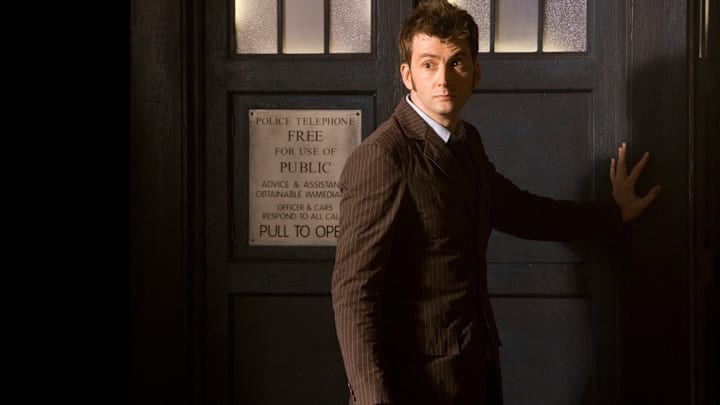Russell T Davies brought Doctor Who back to screens in 2005, and although two other showrunners have filled his role since, his return further cements his prominence within the franchise. While he has been responsible for some of the best Doctor Who episodes of all time, a predictable trend has emerged among the seasons he has overseen.
Now that Ncuti Gatwa has ended his time as the Fifteenth Doctor, Davies has been the showrunner during three distinct Doctor Who eras, with the first being Christopher Eccleston's episodes as Nine, the second being David Tennant's original run as Ten, and then Ncuti Gatwa's era as Fifteen. Although Tennant has since returned as Fourteen, a trilogy of specials hardly constitutes an era, nor does it add to Davies' tally of Doctors he has written for in any meaningful way.
Although most of Davies' more recent episodes of Doctor Who pale in comparison to his earlier scripts, the showrunner clearly still has a particular kind of preference when it comes to including someone to oppose the Doctor. Many of these face-offs have been amazing, but Davies can't really claim all the credit for many of the best villains who have appeared under his watch.

RTD relies very heavily on building toward the comeback of a classic-era Doctor Who villain
Every Doctor Who season that has been helmed by Davies ends the same way, and the journey to the finale hits on very similar beats each time. Ultimately, the larger threat behind everything turns out to be an old enemy of the Doctor, rather than being an original introduction to the canon. Going through all his main runs, Davies brought back the Daleks to oppose Nine in the finale, then gave Ten the Cybermen, the Master, and Davros in his respective season-enders.
Even looking at the specials that served as Tennant's farewell tour between 2009 and 2010, Ten ended up facing the Time Lords before regenerating. When both Tennant and Davies returned for Doctor Who's 60th anniversary specials, Davies spent the trilogy building toward the return of the Toymaker — a villain who hadn't appeared in decades, this time played by Neil Patrick Harris.
RTD's successors, Steven Moffat and Chris Chibnall, also made use of classic-era Doctor Who villains, but not in such a rigid way. When Davies came back to replace Chibnall in 2022, the scripts he wrote for 2023's 60th anniversary specials immediately proved that the returning showrunner hadn't altered his formula. The Toymaker's return was then followed by the resurgence of Sutekh at the end of Ncuti Gatwa's first season as Fifteen, and the Rani was chosen as the overarching villain of the next run of episodes.

Davies' Doctor Who finale trend make less and less sense as time goes by
Doctor Who had been off the air since 1989 when the show was revived in 2005, and the decision was made to thankfully leave all the classic-era canon intact. Still, the show's new era was intended to welcome in a new wave of viewers while also embracing established Whovians. Therefore, including the Daleks as the first major bad guys was a masterstroke that helped bridge the 16-year gap during which the show hadn't been in production.
Continuing to use classic-era villains in Tennant's 2000s finales also worked well, but with the show gathering more and more fans who had never seen a single second of the classic era, it would arguably have made more sense for Davies to start creating original villains for the Doctor to do battle with as the season drew to a close. But, as I say, the route he chose was still effective at this point.
Where the trend started to feel properly misguided was when Sutekh returned in Gatwa's first finale. Not only was the Disney era also intended to be another jumping-on point for new Doctor Who fans, but Sutekh hadn't appeared since 1975's "Pyramids of Mars" with Tom Baker's Fourth Doctor. When the big Sutekh reveal took place in 2024, it fell flat for huge portions of the audience, who had no idea who the villain was.
The Rani's comeback in 2024 was equally underwhelming for many viewers, with the character not being part of the saga since Kate O'Mara played her in the 1980s. The rarity of another Time Lord entering the fray is always a delight, but it doesn't necessarily need to be during the climax of a larger storyline. If anything, it would be more exciting if they just popped up out of nowhere in the middle of a season.

I hope RTD breaks his classic-era villain trend for Doctor Who's next season finale
To give Davies the credit he deserves, it is quite fun trying to figure out who is being teased as coming back, thanks to the subtle clues he includes in the episodes leading up to the finale. However, it would be a nice change of pace if Doctor Who's next season finale bucks this trend. The showrunner has already proven he is capable of creating amazing villains, such as the monster from 2008's "Midnight," which came back in Gatwa's final season.
Certain specials written by Davies, like "The Christmas Invasion," suggest that the 2026 festive installment — which will also be a Davies script — could introduce a new bad guy, although this isn't a guarantee. What I think is more important is that the season that follows said Doctor Who Christmas special ends with a compelling original villain for the first time in either RTD era, rather than so relentlessly digging into the franchise's library of obscure and forgotten antagonists that often require a significant amount of context.
Doctor Who returns with a 2026 Christmas special, and a new season has also been announced to follow.
